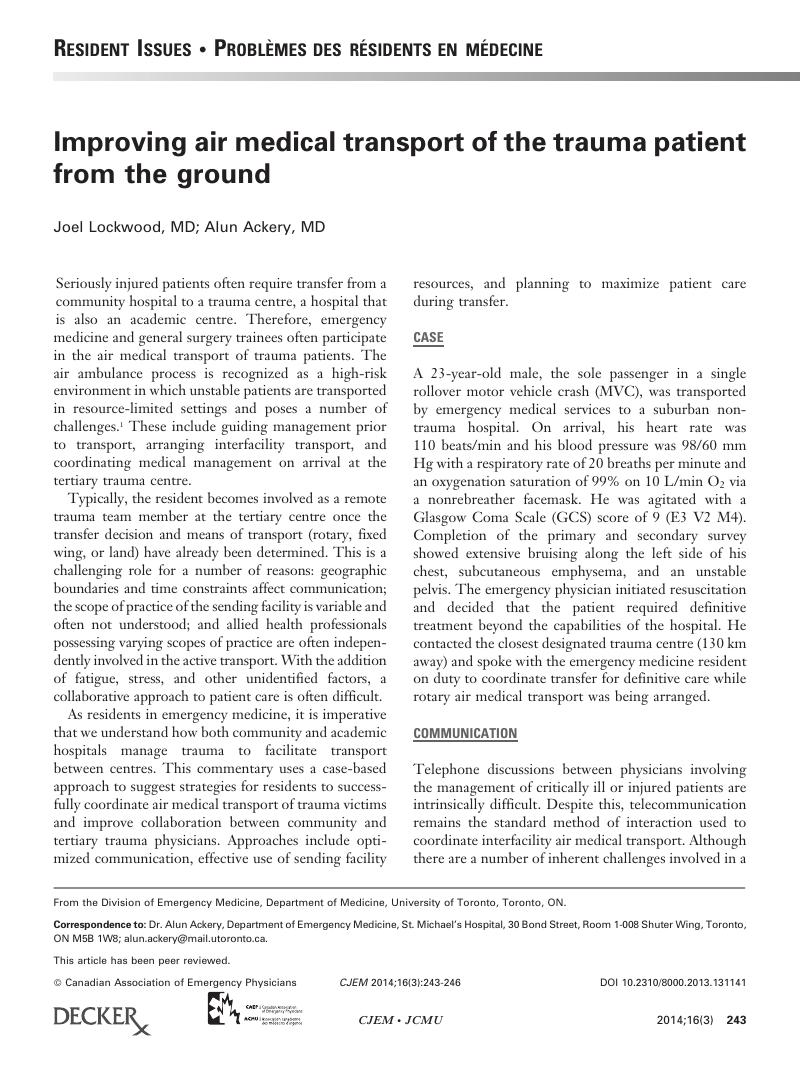Crossref Citations
This article has been cited by the following publications. This list is generated based on data provided by Crossref.
Frost, Elisabeth
Kihlgren, Annica
and
Jaensson, Maria
2019.
Experience of physician and nurse specialists in Sweden undertaking long distance aeromedical transportation of critically ill patients: A qualitative study.
International Emergency Nursing,
Vol. 43,
Issue. ,
p.
79.



